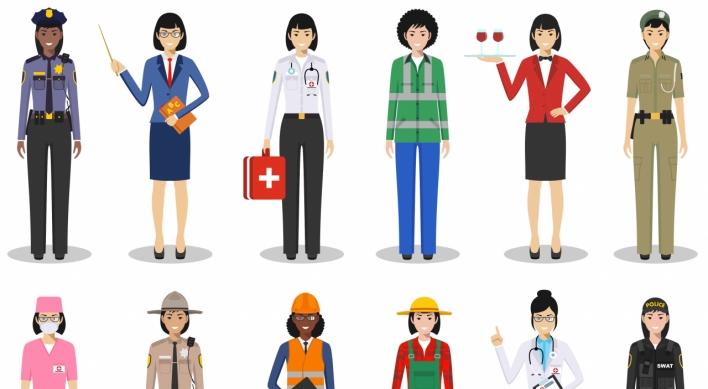International efforts to bring North Korea’s woeful human rights record to the International Criminal Court may not be successful, but the continued pressure could push the reclusive state to improve the way it treats its citizens, experts said Friday.
Amid moves at the U.N. to adopt a human rights resolution calling for the North Korean case to be referred to the ICC, the North has stepped up its diplomacy to counter these efforts and even invited a top European Union human rights official to visit the country.
All these accumulated efforts could help improve the North’s human rights conditions at least on the surface over the long term, although they would invite strong resistance from Pyongyang, which denies any human rights abuses.
The U.N.’s Third Committee, in charge of human rights matters, is expected to determine whether to pass the EU-Japan draft resolution that calls for the U.N. Security Council to refer the North Korean case to the ICC, before sending it to the General Assembly in mid-December.
Experts say that even if the resolution is passed in the Assembly, the UNSC is highly unlikely to refer the North’s case to the ICC as China and Russia, two of the five veto-wielding powers, appear opposed to the ICC referral.
“China’s perspective on international politics is that there are no universal principles applicable to all countries, and that the specific situations of each country should be respected,” said Kim Heung-kyu, a China and diplomacy expert at Ajou University.
“Thus, applying the universal principle of human rights to the specific situations of North Korea runs counter to China’s perspective of world politics. Thus, in principle, it would veto the move to bring the North Korean case to the ICC.”
Kim added that the North, for its part, would take the U.N. moves very seriously as they could have an adverse impact on North Korean leader Kim Jong-un’s efforts to establish a good image as a leader for domestic political purposes, and to improve relations with the outside.
The U.N.’s moves to refer the case to the ICC came after the U.N. Commission of Inquiry report was released in February. The report found evidence of torture, execution, arbitrary incarceration, deliberate starvation, enslavement and other appalling practices that it said amounted to crimes against humanity.
The increasing international criticism has put the North on edge. While Pyongyang has responded angrily, it has also beefed up its diplomacy to show its efforts to improve human rights, raising hopes that its dismal rights conditions might improve.
Some experts expressed concerns that too much pressure on the North regarding its human rights record might adversely influence the international efforts to denuclearize the North given that it argues that the criticism of its rights violations has been “politicized.”
By Song Sang-ho (sshluck@heraldcorp.com)
Amid moves at the U.N. to adopt a human rights resolution calling for the North Korean case to be referred to the ICC, the North has stepped up its diplomacy to counter these efforts and even invited a top European Union human rights official to visit the country.
All these accumulated efforts could help improve the North’s human rights conditions at least on the surface over the long term, although they would invite strong resistance from Pyongyang, which denies any human rights abuses.
The U.N.’s Third Committee, in charge of human rights matters, is expected to determine whether to pass the EU-Japan draft resolution that calls for the U.N. Security Council to refer the North Korean case to the ICC, before sending it to the General Assembly in mid-December.
Experts say that even if the resolution is passed in the Assembly, the UNSC is highly unlikely to refer the North’s case to the ICC as China and Russia, two of the five veto-wielding powers, appear opposed to the ICC referral.
“China’s perspective on international politics is that there are no universal principles applicable to all countries, and that the specific situations of each country should be respected,” said Kim Heung-kyu, a China and diplomacy expert at Ajou University.
“Thus, applying the universal principle of human rights to the specific situations of North Korea runs counter to China’s perspective of world politics. Thus, in principle, it would veto the move to bring the North Korean case to the ICC.”
Kim added that the North, for its part, would take the U.N. moves very seriously as they could have an adverse impact on North Korean leader Kim Jong-un’s efforts to establish a good image as a leader for domestic political purposes, and to improve relations with the outside.
The U.N.’s moves to refer the case to the ICC came after the U.N. Commission of Inquiry report was released in February. The report found evidence of torture, execution, arbitrary incarceration, deliberate starvation, enslavement and other appalling practices that it said amounted to crimes against humanity.
The increasing international criticism has put the North on edge. While Pyongyang has responded angrily, it has also beefed up its diplomacy to show its efforts to improve human rights, raising hopes that its dismal rights conditions might improve.
Some experts expressed concerns that too much pressure on the North regarding its human rights record might adversely influence the international efforts to denuclearize the North given that it argues that the criticism of its rights violations has been “politicized.”
By Song Sang-ho (sshluck@heraldcorp.com)
-
Articles by Korea Herald







![[AtoZ Korean Mind] Does your job define who you are? Should it?](http://res.heraldm.com/phpwas/restmb_idxmake.php?idx=644&simg=/content/image/2024/05/06/20240506050099_0.jpg&u=)











